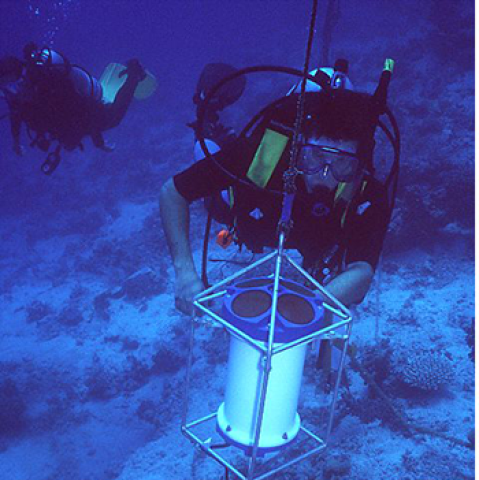Interdisciplinary Initiatives Program Round 1 - 2000
Jeffrey Koseff, Civil & Env. Eng.
Robert Dunbar, Geological & Env. Sci.
The healthy functioning of coral reefs is of great importance, not only because of their amazing beauty, but also for the numerous marine organisms that comprise a reef's ecological community. One of the most important geological and biological functions in the growth of coral reef ecosystems is the sedimentation and accretion of calcium carbonate. This process coupled with photosynthesis by algae (among others) enables reef systems to grow at remarkable rates.
The geochemistry associated with the calcium carbonate cycle can result in releases of aqueous carbon dioxide (CO2) into tissues and reef waters (the reef as a source) , or the uptake of aqueous CO2 from the water column and from plant and animal tissues (the reef as a sink). Some recent studies propose that reefs are sinks, while others claim they are sources of atmospheric CO2. Although significant research effort has been directed towards resolution of this problem during the past 10 years, the magnitude and even the sign of the coral reef ecosystem impact on air-sea CO2 exchange remains unknown. We performed a "proof-of-concept" type study on a reef system in the Red Sea with the goal of developing methodologies for accurately determining total carbon, CO2, and alkalinity mass balances for entire reef systems using a control volume approach.



